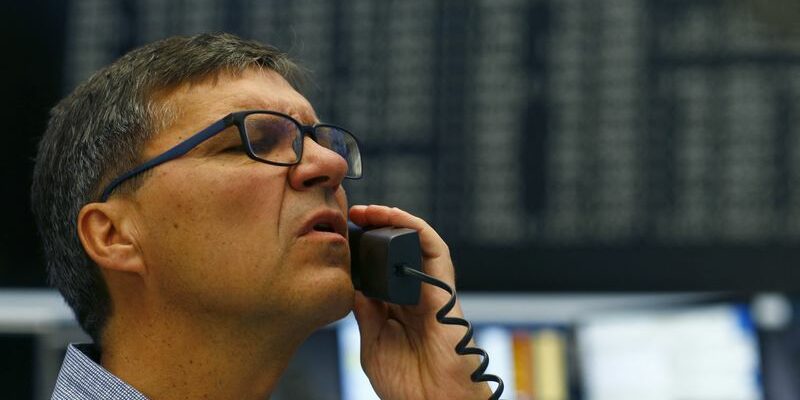by Laetitia Volga
PARIS (Reuters) – The main European stock markets are expected to be in the red at the opening on Friday, at the end of an unfavorable year for global equities with in particular the monetary tightening of the major central banks.
Futures contracts give a drop of 0.46% for the Paris CAC 40, 0.47% for the Dax in Frankfurt, 0.27% for the FTSE in London and 0.52% for the EuroStoxx 50 UK markets will close at 12:30 GMT.
The time will probably not be for risk-taking for the last session of 2022. Investors have wondered in recent days about the consequences for the markets of China’s abandonment of its “zero-COVID” policy.
On the one hand, the resumption of travel could give a boost to the global economy, but also spread the coronavirus beyond China’s borders. On the other hand, investors fear that increased demand from China will drive up commodity prices, prompting central banks to raise interest rates further to stem inflation.
The struggle of issuing institutions against rising prices has been at the heart of market news throughout the year and should remain so in 2023, as well as the probable onset of a recession and geopolitical tensions .
European markets should end the year with negative performances: the CAC 40 is currently down 8.1%, the Dax 11.41% and the European Stoxx 600 index 11.78%, their worst performance since 2018.
The MSCI global stock index is expected to do worse with an annual fall of around 20%, not seen since the 2008 financial crisis.
The Footsie, on the other hand, should stand out with a positive performance over the year as a whole, the flagship London index having benefited from its exposure to commodity prices, which have increased with the war in Ukraine.
VALUES TO FOLLOW:
AT WALL STREET
The New York Stock Exchange ended higher on Thursday, driven by a rebound in growth stocks thanks to the relaxation of bond yields and the good reception reserved for the indicator of weekly jobless claims.
The slightly higher enrollment figures supported the idea that the Federal Reserve’s monetary tightening was paying off, easing concerns about future rate hikes.
The Dow Jones Index gained 345.09 points, or 1.05%, to 33,220.8 points, the S&P 500 rose 66.06 points, or 1.75%, to 3,849.28 and the Nasdaq Composite rose. climbed 264.80 points, or 2.59%, to 10,478.09.
The volume of transactions was relatively low with 8.78 billion shares traded, against an average of 10.95 billion over the last twenty sessions.
IN ASIA
In Tokyo, the Nikkei erased its gains at the end of the session to end up perfectly balanced. In 2022, the index fell 9.4%, its first annual loss since 2018. Japanese markets will reopen on Wednesday after a break for the New Year festivities.
The trend was rebound in China where investors focused on the positives expected in 2023, such as Beijing’s support for growth and the reopening of the country despite the uncertainties on the evolution of the health situation linked to the COVID-19.
Banks Citi, Bank of America and JPMorgan have raised their recommendations on Chinese stocks recently, expecting an economic recovery next year.
Mainland China’s large-cap CSI 300 index gained 0.39% and Shanghai’s SSE Composite 0.51%
EXCHANGES/RATES
With risk appetite decreasing, the dollar gained 0.2% against a basket of benchmark currencies. The euro thus fell to 1.0646, down 0.14%.
Variations are limited on the bond markets where the US ten-year yield is unchanged at 3.8369% and its German equivalent at 2.467%.
OIL
Oil prices are rising and are on track to record a second consecutive year of increases.
Brent rose 0.73% to 84.07 dollars a barrel and American light crude (West Texas Intermediate, WTI) 0.69% to 78.94 dollars.
The first is currently showing an annual gain of 7.9%, after jumping 50.2% in 2021, and the second 4.8% in 2022, after a 55% increase last year.
“This has been an extraordinary year for commodity markets, with supply risks leading to increased volatility and high prices,” said Ewa Manthey at ING.
(Laetitia Volga, edited by Matthieu Protard)
